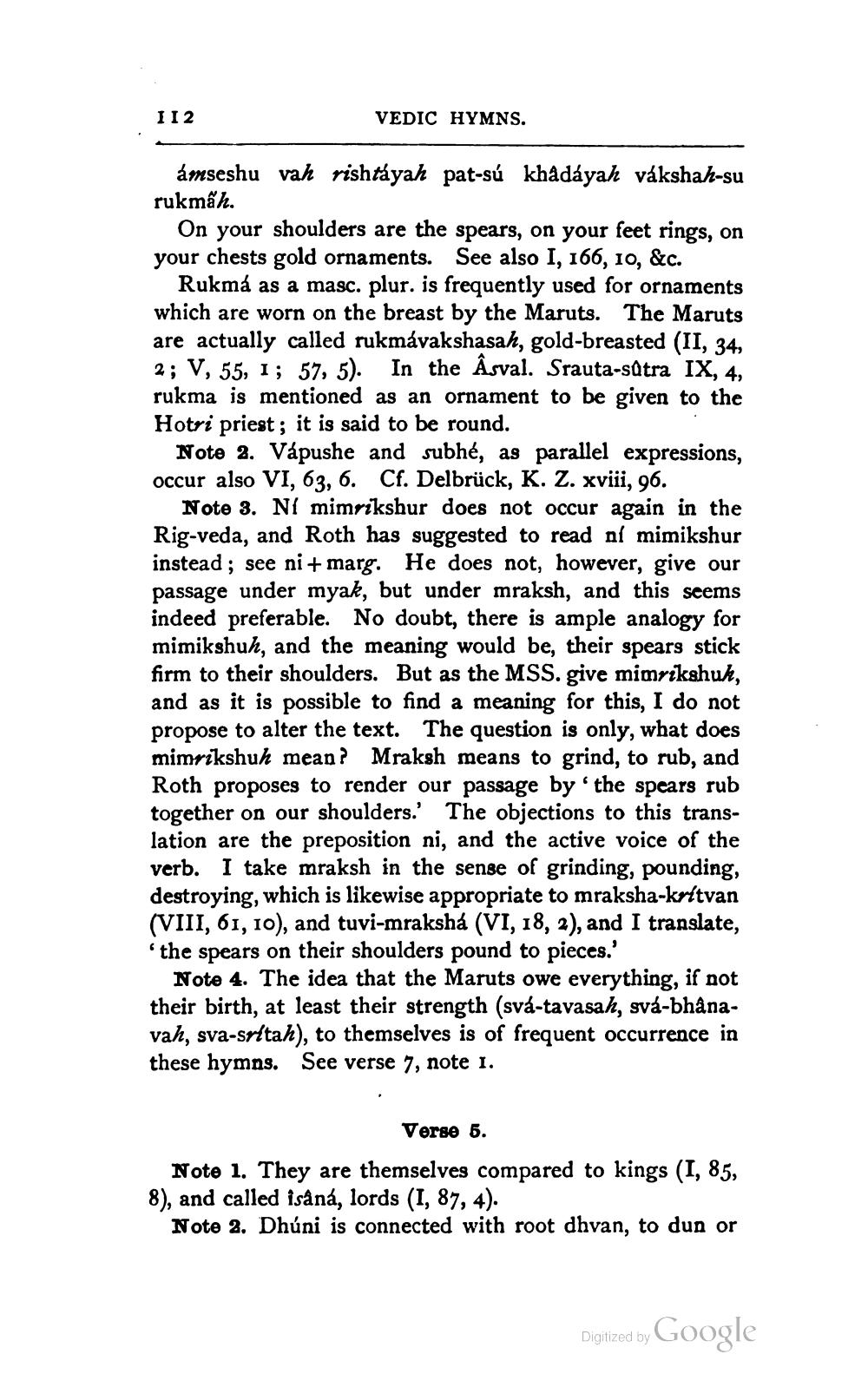________________
II2
VEDIC HYMNS.
ámseshu vah rishtayah pat-sú khádáyah vákshah-su rukmah.
On your shoulders are the spears, on your feet rings, on your chests gold ornaments. See also I, 166, 10, &c.
Rukma as a masc. plur.is frequently used for ornaments which are worn on the breast by the Maruts. The Maruts are actually called rukmávakshasah, gold-breasted (II, 34, 2; V, 55, 1; 57, 5). In the Asval. Srauta-satra IX, 4, rukma is mentioned as an ornament to be given to the Hotri priest; it is said to be round.
Note 2. Vápushe and subhé, as parallel expressions, occur also VI, 63, 6. Cf. Delbrück, K. Z. xviii, 96.
Note 3. Ní mimrikshur does not occur again in the Rig-veda, and Roth has suggested to read ní mimikshur instead; see ni + marg. He does not, however, give our passage under myak, but under mraksh, and this seems indeed preferable. No doubt, there is ample analogy for mimikshuh, and the meaning would be, their spears stick firm to their shoulders. But as the MSS. give mimrikshuk, and as it is possible to find a meaning for this, I do not propose to alter the text. The question is only, what does mimrikshuh mean? Mraksh means to grind, to rub, and Roth proposes to render our passage by the spears rub together on our shoulders.' The objections to this translation are the preposition ni, and the active voice of the verb. I take mraksh in the sense of grinding, pounding, destroying, which is likewise appropriate to mraksha-kritvan (VIII, 61, 10), and tuvi-mraksha (VI, 18, 2), and I translate, the spears on their shoulders pound to pieces.'
Note 4. The idea that the Maruts owe everything, if not their birth, at least their strength (svá-tavasah, svá-bhana. vah, sva-srltah), to themselves is of frequent occurrence in these hymns. See verse 7, note 1.
Verse 5. Note 1. They are themselves compared to kings (I, 85, 8), and called isâná, lords (I, 87, 4).
Note 2. Dhúni is connected with root dhvan, to dun or
Digitized by
Digized by Google




